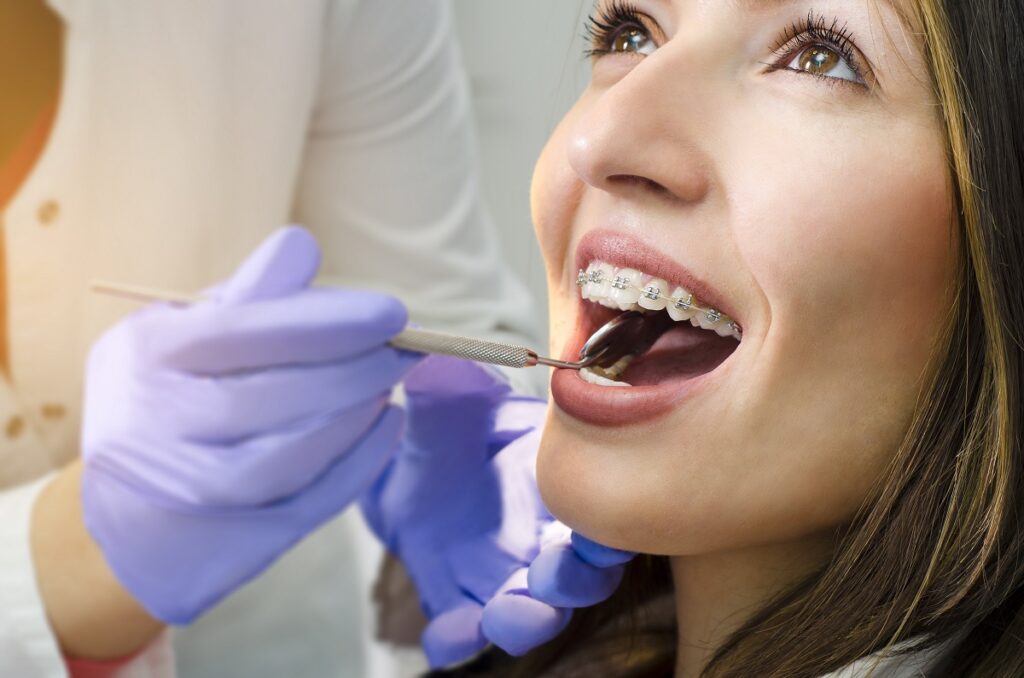- Establish a consistent oral hygiene routine, including brushing twice daily and flossing once daily.
- Adopt a teeth-friendly diet that minimizes sugary and acidic foods.
- Schedule regular dental check-ups every six months.
- Practice good habits for teeth protection, such as wearing mouthguards when playing contact sports.
- Consider teeth replacements for damaged or missing teeth.
Taking care of your dental health is essential for your overall well-being. A healthy mouth allows you to eat and speak comfortably, improving your confidence and self-esteem. Neglecting dental health can lead to various oral issues, including cavities, gum disease, and tooth loss. This guide will provide five valuable tips to prioritize dental health, ensuring a bright and healthy smile for years.
1. Establish a Consistent Oral Hygiene Routine
Establishing a consistent oral hygiene routine is crucial to maintain optimal dental health. Here are some tips for having a consistent oral hygiene routine:
Set a Reminder
One of the most effective methods for establishing a consistent oral hygiene routine is to set up reminders. Whether that’s an alarm on your phone or sticky note reminders around your house, making it easier to remember can help you stick to the routine.
Make It a Habit
Make brushing and flossing part of your daily routine. Try brushing and flossing at certain times each day, such as after meals or before bed. Doing this will help embed the activity in your subconscious mind, making it easier to remember to do it daily.
Involve Your Family
A healthy oral hygiene routine can be challenging if you’re the only one in your family following it. Get your family on board and make it a team effort! You can even set up a reward system to encourage everyone to stay on track.
Seek Professional Advice
If you have any questions or concerns about establishing an effective oral hygiene routine, don’t hesitate to contact a dental professional. They can give you specialized advice tailored to your individual needs.
2. Adopt a Teeth-Friendly Diet
The health of your teeth is greatly influenced by the food you consume. A well-balanced diet is crucial for maintaining optimal dental health. Avoid excessive consumption of sugary and acidic foods, as they can erode tooth enamel and promote the growth of harmful bacteria in your mouth. Instead, choose a balanced diet rich in fruits, vegetables, whole grains, lean proteins, and dairy products. Calcium and phosphates found in dairy help strengthen teeth, while fruits and vegetables with high water content stimulate saliva production, which helps protect against cavities. Avoid snacking between meals, as frequent snacking can expose your teeth to prolonged acid attacks. Choose healthier options like cheese, nuts, or raw vegetables if you snack.
3. Schedule Regular Dental Check-ups
Regular dental check-ups are vital for maintaining excellent oral health. Schedule visits to your dentist every six months for routine cleanings and examinations. During these visits, your dentist will remove plaque and tartar buildup, which can lead to cavities and gum disease if left untreated. They will also check for any signs of dental issues, such as cavities, gum inflammation, or signs of teeth grinding. Detecting problems early allows prompt treatment, preventing more extensive and costly procedures. Moreover, dental check-ups allow you to discuss concerns and receive personalized advice on improving your dental care routine.
4. Practice Good Habits for Teeth Protection
Protecting your teeth from potential harm is essential to maintaining optimal dental health. If you play contact sports or engage in activities that may pose a risk of dental injury, such as skateboarding or martial arts, wear a mouthguard to shield your teeth and gums from impact. Avoid using your teeth as tools to open packages or bottles, which can cause cracks or chips. If you grind your teeth at night or during times of stress, consider wearing a nightguard to prevent damage to your teeth and alleviate jaw pain. Additionally, quit smoking or using tobacco products, as they can stain your teeth, cause gum disease, and increase the risk of oral cancer.
5. Consider Teeth Replacements for Damaged Teeth
In cases of damaged or missing teeth, it’s crucial to consider a durable teeth replacement to restore your smile and dental function. If you have a severely decayed or fractured tooth, your dentist may recommend a dental implant to protect the remaining tooth structure and restore its appearance. Dental implants are an excellent option for replacing missing teeth as they provide a long-lasting and natural-looking solution. They also help maintain the integrity of your jawbone and surrounding teeth. Consulting with your dentist will help determine the best replacement option for your situation.
To Wrap It Up
Prioritizing your overall dental health is an investment in your well-being and self-confidence. By establishing a consistent oral hygiene routine, following a teeth-friendly diet, scheduling regular dental check-ups, practicing good habits for teeth protection, and considering teeth replacements when necessary, you can maintain a healthy and radiant smile throughout your life. Remember, prevention is always better than cure, so take proactive steps to care for your teeth and gums, and you’ll reap the rewards of a beautiful and healthy smile for years to come.


